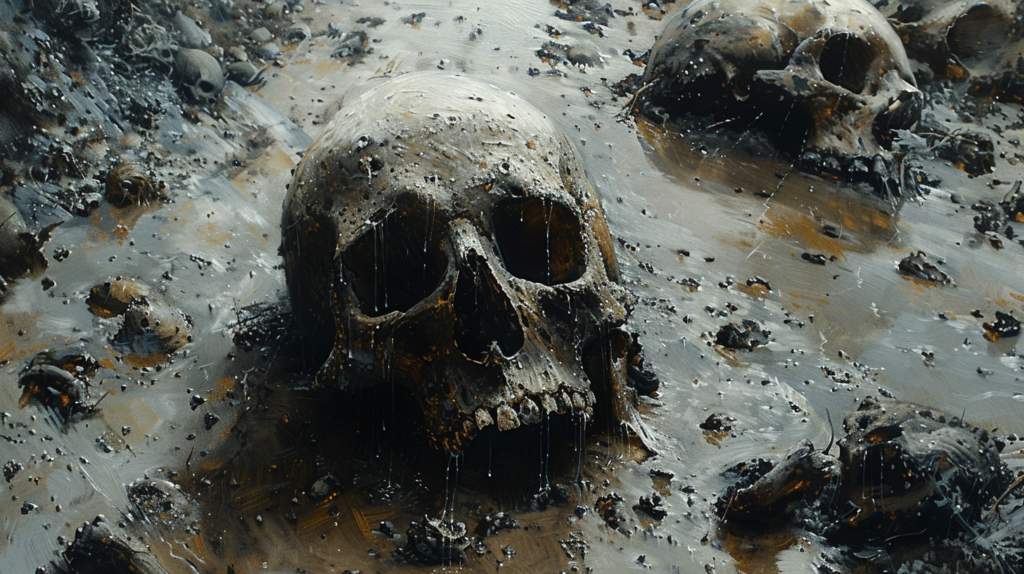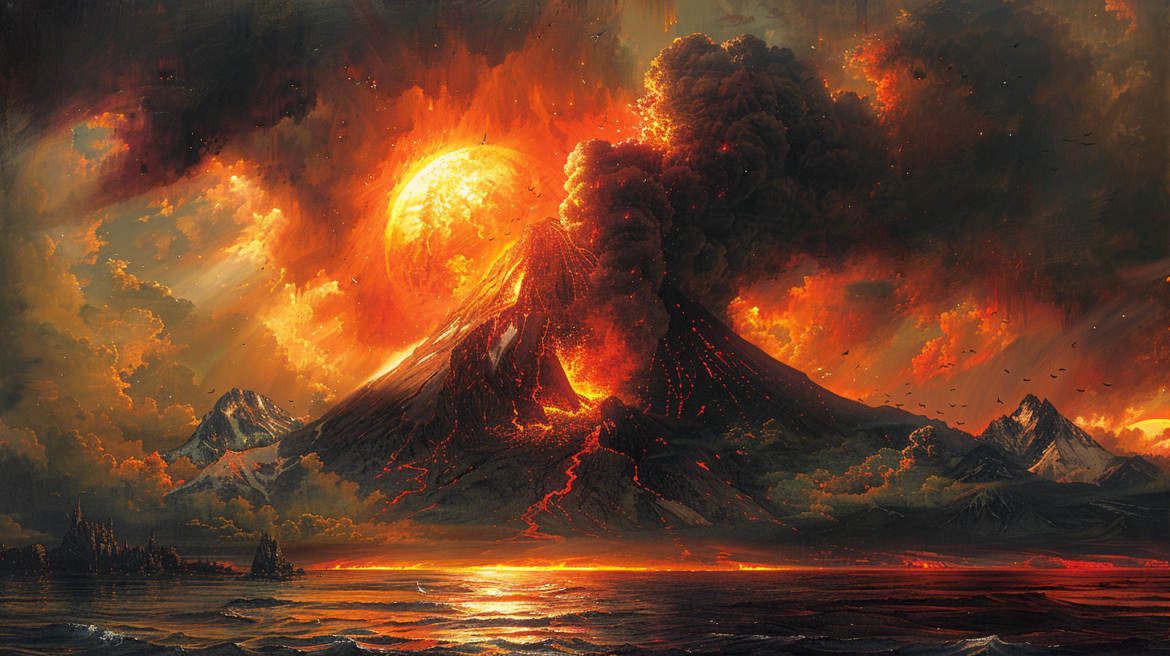Humanity has always been resilient, we have almost been wiped from existence before and I have no doubt the Gods will try again. The Toba Eruption, almost snuffed us out before we lived at all. This isn’t your average history lesson; this is a tale of sorrow and death, of a cataclysm that changes the fabric of our humanity.
It was roughly 75,000 years ago, as the colossal Toba Volcano in modern-day Indonesia casts a dark shroud over the Earth. That day saw the world plunged into darkness, an eruption so violent it wouldn’t be recognized today, spewing an apocalyptic clouds that eclipses the sun worldwide. The skies darken, ash rains from the sky, death and despiration seeped through every fiber of humanity. The Toba Eruption was the juncture at which myth and fact, history, and pre-history entwined.
Toba, had awakened.
Echoes of the Eruption
The explosion could be hear half the world away, those that lived at the foot of the mountain wouldn’t have even know they died. In its wake, all that is left is Toba Caldera, a 100-kilometer-wide chasm turn mountain lake, concealing the wrath beset upon the world beneath its serene surface. But the devastation did not rest within the caldera; it reverberated through time, shaping the destiny of Homo sapiens.
Migrations of Desperation
The cultural and climatic impact of the eruption effected every island, every continent, every person and animal on this planet. It pushed humanity to the brink of existence as they fled the ash-laden plains of Asia. the population would collapes globally, a bottle-neck effect occurred within the human population, as the number of breeding pairs plummeting to just a few thousand. This genetic isolation forced human evolution to a fine point, those fit to survive the noxious and desolate landscapes would be the some humans we are today. Humanity emerged not just in spite of but because of thi catastrophe.
Ancient Civilizations in Ashen Veil
The immediate aftermath saw a drop in global temperature, instigating a ‘volcanic winter’ that starved the Earth of sunlight. Civilizations in Africa, India, and the Near East would have been unaware of the causal nexus between their subsistence and the Toba Eruption. However, in the freezing darkness of the decades that followed, their stories may well have been tales of survival against insurmountable odds.
The evidence of Toba’s colossal impact extends to the disruption of human habitation and the abrupt disappearance of various species across the globe. The history of human migration and cultural development pivots around this monumental event as ancient communities were forcibly scattered into the winds, seeking refuge and new ecological niches to call home.
Before Toba, estimations suggest a human population numbering in the hundreds of thousands, if not more, across Africa and Asia. However, the eruption arguably decimated the numbers, leaving behind a drastically diminished echo of humanity. Those populations that scraped a living clinging to the fringes of existence could never have imagined that they were the luck few to carry the human race.

The Dawn of Genetic Isolation
With the eventual retreat of the volcanic winter came the birth of a new world and a new human population. The new human race had limited numbers to grow the population and survive . The impact of this isolation resonates within us today, in the form of genetic predispositions, resistance, and resilience. This event has ensured that the people that survived passed down the traits to survive again.
Gods in the Eruption
In the wake of the Toba eruption, diverse mythologies and narratives sprang forth, attempting to grapple with the enormity of the disaster and the struggles of the survivors. These myths, passed down through generations, told tales of wrathful gods, floods, and the darkness that fell upon the world. They served as cautionary tales and foundational stories that united disparate groups under a shared narrative.
The eruption also meant the loss of a homeland for many people. The landscapes they once tilled and were now desolate, covered with the remnants of volcanic debris. Places of fertile glory had turned into barren wastelands, and the survivors were forced to disperse, seeking new lands and the unexpected encounters that would define their future.
A New World
For millennia, Toba’s influence was etched into the DNA of human development, yet most of us remain blissfully unaware of its seismic effects. Today, as we sift through the genetic relics and cultural remnants of this story, Toba serves as a reminder of the human experience—a tale of resilience, adaptation, and, ultimately, survival.
The Toba Catastrophe is a tale about the importance of taking care of the world so that it takes care of us. Nature is powerful and must be respected, it is uncontrollable and unruly, all we can do is survive it. Our destinies, have scattered far and wide since then but the impact of the volcano is a part of all of us.
Deeper Reading:
“Supervolcano: The Catastrophic Event That Changed The Course Of Human History” by Marie D. Jones
